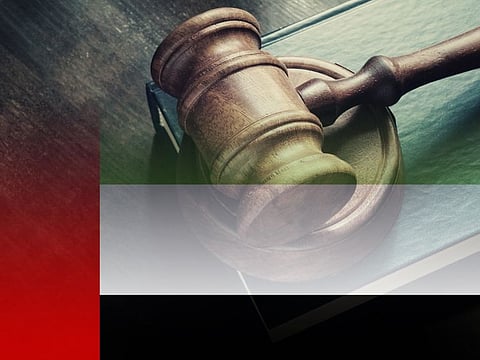Sports arbitration and its ramifications
How the UAE has become a hub for the specialism

Pursuant to hosting in 2012 the first seat for the Court of Arbitration for Sport outside of Switzerland, in June 2020 the United Arab Emirates National Olympic Committee announced that the UAE Sports Arbitration Center (UAE SAC). It is now fully operational and “equipped with every facility” aimed at the parties who are seeking at setting aside their controversies via mediation or arbitration.
It is no secret that UAE is one-step ahead of the game as we are witnessing tectonic movements in the sports market. While Covid-19 brought most sports events to a standstill, we are still able to see high-level sponsorship deals, transfers of players, etc. With the Abraham Accords, there is a keen interest from both the UAE and Israel in this field, which involves possible team acquisitions, joint workshops, events and sponsorship opportunities.
The UAE’s vision remains unparalleled and translates into “educating the community members on the importance of sport by developing a sports community capable of giving, travail and perseverance in order to raise the UAE flag high in international arenas.”
While most sports arbitration matters are being ventilated in the Court of Arbitration for Sport headquartered in Lausanne, Switzerland, the UAE’s National Olympic Committee initiative is levelling the game.
Once the award has been issued, it is final and binding and there are only 30 days to challenge the award. Proven such challenge has not happened, the award it can be enforced anywhere in the UAE.

The name sports arbitration needs neither introduction, nor further explanation as it is the main method for solving the disputes surrounding this discipline.
Sports arbitration has its peculiarity as the provisions and procedures are tailored in a unique matter, which results in an increasing volume of cases.
Referring a case to an arbitration tribunal emanates from a specific arbitration clause, which nullifies all other legal procedures; for instance, a traditional Court of Law cannot interfere in the cases that have arbitration as the main mechanism to solve the dispute.
Many times, the disputes are too wide to be falling under the sports category and could easily be interpreted as civil or commercial matters. Nonetheless, if the matter is related to a sport discipline, or to a sports team, then most likely the matter is to be seen by a specialised court.
For instance, if there is a case of referee abuse, or even worse, doping, it will be dealt with prima facie by the authority governing that specific sports discipline, while an agency agreement, a sponsorship agreement or broadcasting rights will most likely be seen by an arbitration centre.
Due to the fact that there is not a body of laws, sports law cannot be identified as a separate substantive area of law, but as a hybrid: labour contracts, commercial, sponsorship agreements, broadcasting rights, taxes, intellectual property. Under those circumstances, is arbitration possible? Absolutely! Every contract, which incorporates an arbitration clause, is subject to arbitration, as long as it does not contravene the provisions of the law.
Another interesting area is E-Gaming. While gambling remains forbidden in the UAE, the e-gaming industry is constantly evolving, opening new revenue streams for the operators, which are divided in several sectors out of which the most important ones are traditional mobile games and e-sports streaming. What will be interesting to see is how the e-gaming market, and consequently the E-Sports Federation will be handling their future disputes between the gamers. What will happen at an e-sports event when a third party needs to decide the outcome of a game? Will this be considered as Sports Arbitration or will it be falling under a different category?
In parallel, the business environment is thriving as the United Arab Emirates keeps providing some of the best and most lucrative business opportunities to entrepreneurs and companies who wish to set-up shop in the UAE. It is no secret that any commercial relationship has its own set of disputes involving business partners, competitors, or labour matters. It has been proven that negotiation and mediation are the first techniques to be employed in case of a dispute. However, in certain cases, the parties may decide to opt in for arbitration directly.
The arbitration proceedings are extremely transparent and in many cases are finishing within six months, always following the strictest confidentiality rules.
Disputes often arise out of a contractual breach; regardless of its nature, we start by reviewing the contracts and identifying the points which led to the current issue. Depending on its complexity, we call the parties to a mediation process, which in most cases puts an end to the battle even before it starts. Should the parties refer the matter to arbitration, we are present in the majority of the Arbitration Centers: DIAC, DIFC-LCIA, ADCCAC, RAK and Ajman. The language of the proceedings, regardless of if it is a negotiation, mediation or arbitration, can be at the choice of the parties involved, with English as the predominant language. We had negotiations and even mediations in which the parties would not speak neither English, nor Arabic, but Spanish, which made it easier for the parties to understand each other and reach an agreement without the need of recurring to the local courts.
So, what happens after the matter is being submitted before an arbitration tribunal? Proven there are no jurisdictional objections, the process continues its course and culminates with the final award. Once the award has been issued, it is final and binding and there are only 30 days to challenge the award. Proven such challenge has not happened, the award it can be enforced anywhere in the UAE by the successful party to obtain the relief to which it is entitled to.
Mr Nedelcu is a multilingual prominent European attorney and certified mediator with extensive experience in a multitude of jurisdictions across the globe. His expertise is related to complex arbitration and mediation disputes, having represented clients both locally before DIAC, DIFC-LCIA, ADCCAC and internationally.
To learn more, visit alsafar.dubailawyers.ae or email: arbitration@alsafarpartners.com
Partner content



